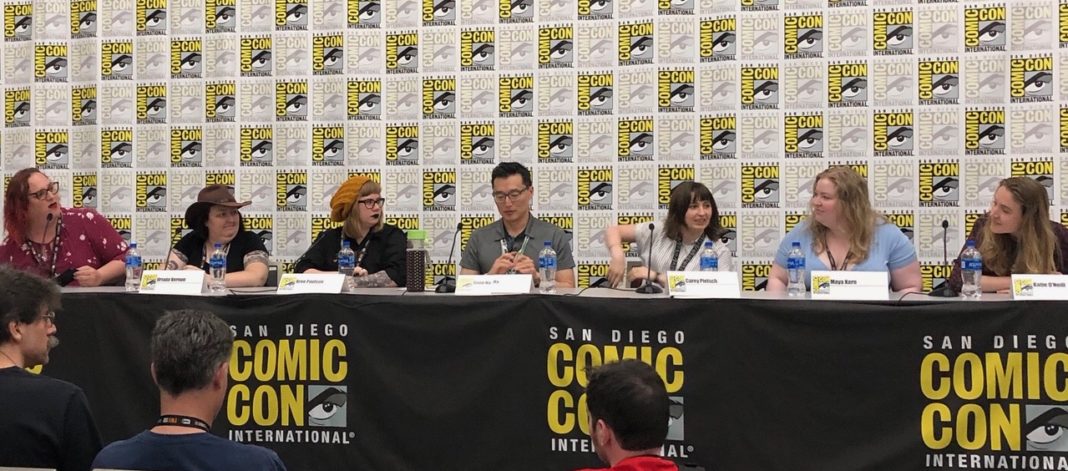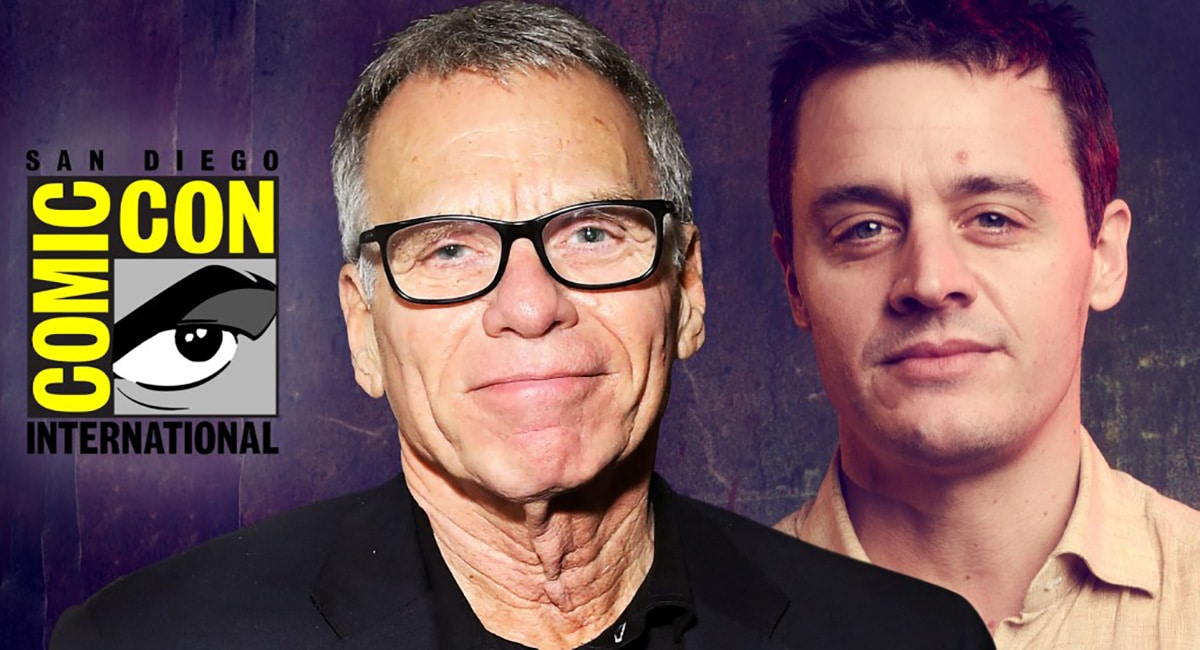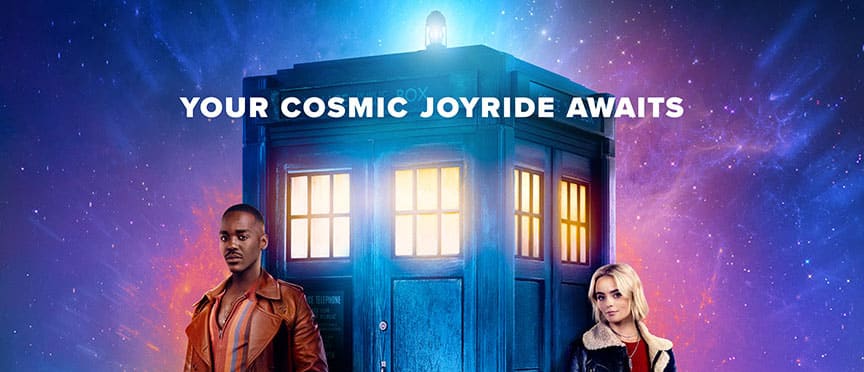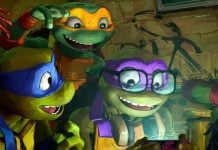By Ani Bundel
In the world of San Diego Comic-Con, the fandoms are represented by two separate but equally important groups: science fiction, with shows like Star Trek, and fantasy, with franchises like Harry Potter. “iPhones and Wands” was their panel, exploring the question of magic vs tech. (DUN DUN)
Moderated by comics writer Lilah Sturges, this philosophical panel stretched from end to end of the stage. The group included creators Ursula Vernon, Bree Paulsen, Gene Ha, Carey Pietsch, Maya Kern, and Katie O’Neill. Sturges started with a fundamental question: How would one classify Star Wars: fantasy or science fiction? As one of the most significant fandoms of our time, this should seem easy. And yet, half the panel seemed unwilling to choose. In fact, the answer seemed to be both.
Arthur C. Clarke famously said, “Any sufficiently advanced technology is indistinguishable from magic.” So if Star Wars is both fantasy (magic) and sci-fi (tech), what is the difference? The panel agreed it was a class issue. Technology is democratic. An iPhone is something anyone can learn to use. But magic is different.
As Vernon put it, “It’s ‘You’re a Wizard, Harry!’ And either you are, or you aren’t.”
In that sense, something like Star Wars, despite the science fiction trappings of space travel, is a fantasy. Obi-Wan might not have roared, “You’re a Jedi, Lukey!,” but the ability to wield the Force is magic. Either you’ve got it, or you don’t.
To that, Ha relayed a story he’d heard previously, in which Star Wars was compared, not to Harry Potter, but Disney. If one considers the Christopher Booker idea that there are only seven stories in the world, then Star Wars is Cinderella. A fairy godmother (Obi-Wan) comes to a downtrodden orphan raised by relatives, and says, “Bibbity Bobbity Boo!” Suddenly Luke is going to the Rebellion Ball and meeting royalty.
https://twitter.com/amandonium/status/1153026183375622145
But is there a difference between fantasy and sci-fi at all? For all that sci-fi claims to be putting forth ideas that should be able to happen in the future, there’s a lot of handwaving in the getting there. Technobabble may sound fancy, but none of it means anything. Geordi LaForge might as well be casting spells to get the Enterprise out of whatever scrape the crew on the bridge have gotten them into this time.
So why the insistence on keeping them separate? Paulsen was blunt: Gatekeeping.
In the end, these terms are gendering one over the other, with “science fiction” as the more “masculine” and “fantasy” as somehow “for girls.” But if all these terms are the same old sexism, why don’t more books mix the two? Harry Potter might be to blame for the view that they don’t, but that’s not J.K. Rowling’s fault. After all, when she started writing the books in 1990, it was before the internet revolution took off, and the first one was published in 1997, a decade before the word “smartphone” existed.
Every panelist agreed more stories should mix magic vs tech. Those stories which are the most successful are the ones that do. Sci-fi is interested in the “how,” and fantasy is concerned with the “why.” As O’Neill put it, the best worldbuilding “mixes just the right amount of how and why” and makes it all believable.








